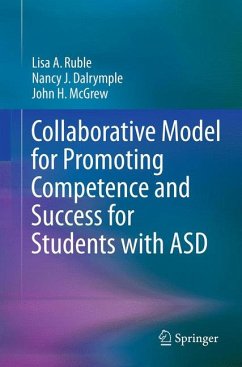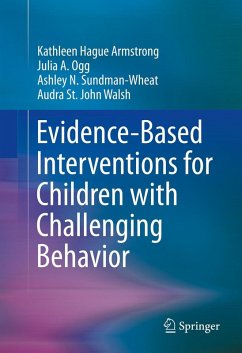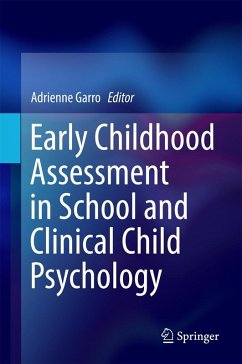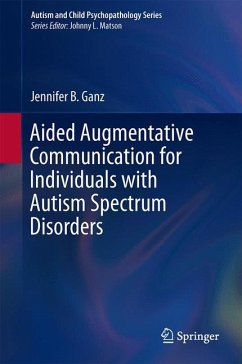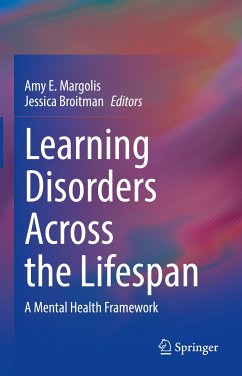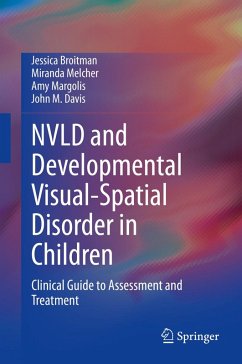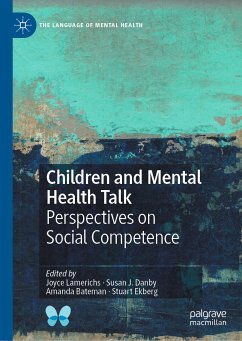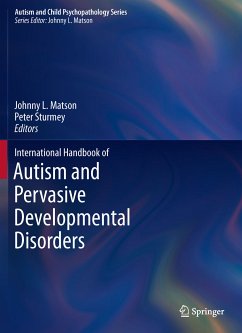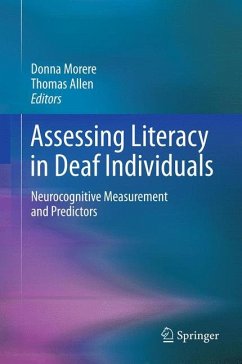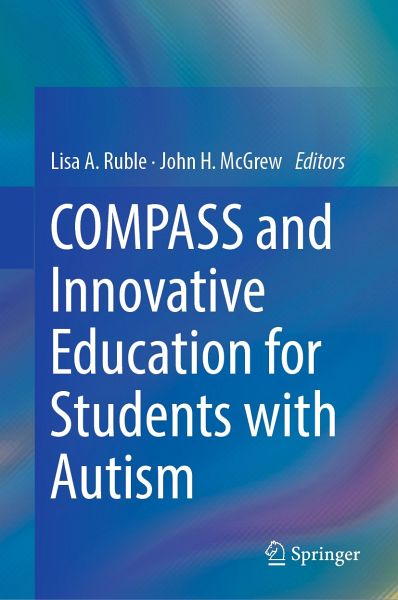
COMPASS and Innovative Education for Students with Autism (eBook, PDF)
Versandkostenfrei!
Sofort per Download lieferbar
121,95 €
inkl. MwSt.
Weitere Ausgaben:

PAYBACK Punkte
61 °P sammeln!
This book examines the five primary areas of the Collaborative Model for Promoting Competence and Success (COMPASS). It describes COMPASS as an evidence-based practice in psychology (EBPP) versus an evidence-based practice (EBP) and discusses how it informs innovative individualized education program (IEP) goal setting., planning, and implementation through teacher coaching. In addition, the book introduces the common elements necessary for improved teaching plan quality and child goal attainment in maximizing educational outcomes. It also describes the extension of COMPASS to transition-age h...
This book examines the five primary areas of the Collaborative Model for Promoting Competence and Success (COMPASS). It describes COMPASS as an evidence-based practice in psychology (EBPP) versus an evidence-based practice (EBP) and discusses how it informs innovative individualized education program (IEP) goal setting., planning, and implementation through teacher coaching. In addition, the book introduces the common elements necessary for improved teaching plan quality and child goal attainment in maximizing educational outcomes. It also describes the extension of COMPASS to transition-age high school students with autism as well as the integration of current research findings from NIH-funded studies for transition-age youth and professional development and training. Finally, the book explores innovative methods to support the consistent implementation and expansion of COMPASS across school, home, and community settings. It discusses how to integrate classroomwide performance assessment to identify students in need of the focused instruction that COMPASS provides.
Key areas of coverage include:
COMPASS and Innovative Education for Students with Autism is an invaluable resource for educators, clinicians, scientist-practitioners, and therapists as well asresearchers, professors, and graduate students in the fields of child and school psychology, behavioral therapy, and social work as well as rehabilitation, special education, speech pathology, and all interrelated disciplines.
Key areas of coverage include:
- Identifying personalized goals and intervention strategies (i.e., EBPs) using an EBPP framework within COMPASS for students with autism.
- Advances in measurement of IEP quality for transition-age autistic youth
- Integration of accessible online educational materials necessary to implement COMPASS feasibly when implemented by school consultants and autism trainers
- Lessons learned from professional development and training of community-based autism school consultants for developing high quality intervention plans.
- COMPASS IEP goal attainment and fidelity outcomes with face-to-face, telecoaching, and electronic feedback.
COMPASS and Innovative Education for Students with Autism is an invaluable resource for educators, clinicians, scientist-practitioners, and therapists as well asresearchers, professors, and graduate students in the fields of child and school psychology, behavioral therapy, and social work as well as rehabilitation, special education, speech pathology, and all interrelated disciplines.
Dieser Download kann aus rechtlichen Gründen nur mit Rechnungsadresse in A, B, BG, CY, CZ, D, DK, EW, E, FIN, F, GR, HR, H, IRL, I, LT, L, LR, M, NL, PL, P, R, S, SLO, SK ausgeliefert werden.



